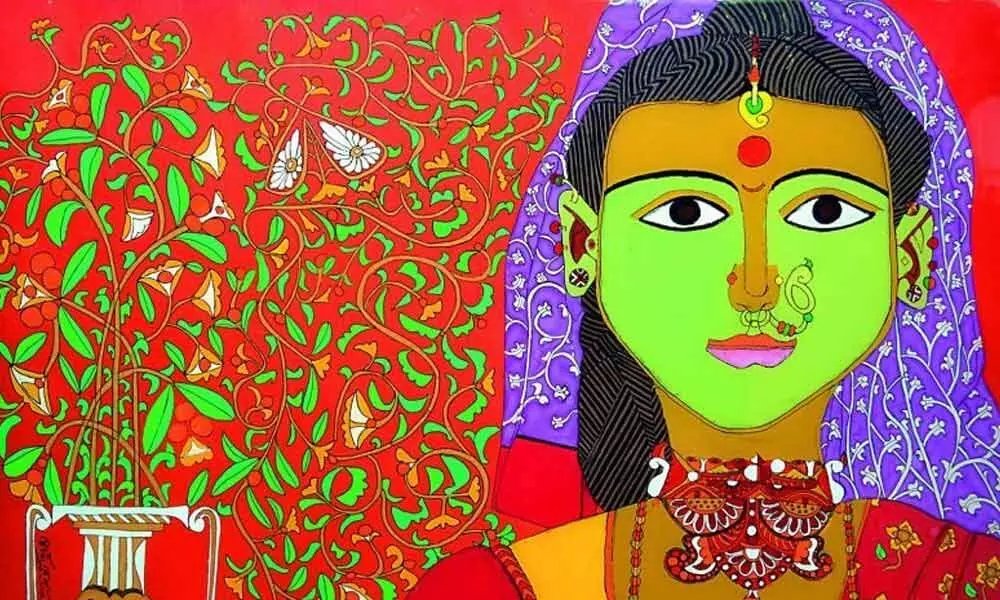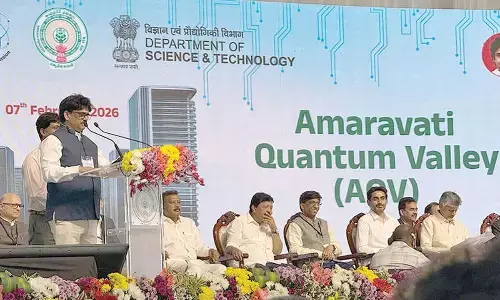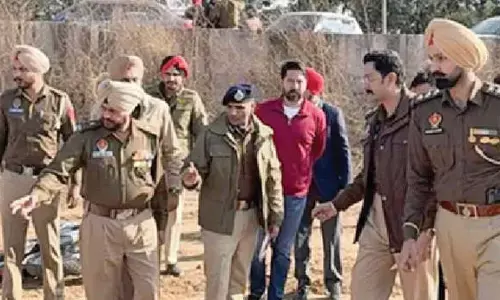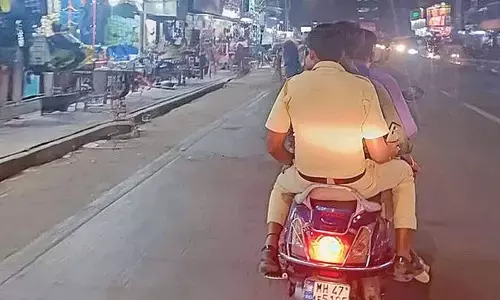An image can convey multiple meanings

An image can convey multiple meanings
After the formation of the youngest state of Telangana in 2014 or much before that, festivities like Bonalu, Bathukamma and their implicit relationship with women has been the subject of representation in the Visual arts
In the context of contemporary Telangana art, the image seems to arouse a socio political consciousness. This consciousness operates at two levels. On the one hand, diverse art forms such as painting, music, photography and folk arts emphasize on celebrating and beautifying the bucolic imagery of the region, on the other, they have facilitated in the construction of a cultural identity called 'Telangana art'. Even though the landscape of Contemporary Visual art comprises of various genres and trends, the engagement with the region's culture and representation of woman as the bearer of this identity has been constantly observed in many artists work. The imagination of the motherland as feminine is deeply rooted in religious and cultural association of the earth to the female force.
Take for instance, the icon of the 'Telangana Thalli' in comparison to the icon of 'Bharat Mata', as a mother goddess presents starking similarities. While the later icon has been popularised during Colonial times as a 'Nationalist' symbol through Popular Calender Art; the former embodies regional identity of 'Telangana'. As Abanindranath Tagore painted his version of 'Bharat mata', our own Kondapalli Seshagiri Rao depicted 'Telugu Thalli'. However in any case the woman's body becomes a symbol of entitlement and ownership by embodying a whole community's imagination.
After the formation of the youngest state of Telangana in 2014 or much before that, festivities like Bonalu, Bathukamma and their implicit relationship with women has been the subject of representation in the Visual arts. Traditional arts like Nakashi scroll paintings and Ganga patams in Kalamkari technique have depicted and circulated the images of village deities; as visual aids to narrate caste myths in older times. The icon of the goddess or the Shakti is given due prominence by painting it larger than other figures and also worshiped as the idol itself in these scroll paintings. The vibrant paintings of goddess Kali and Durga on the walls of roadside shrines around the city add to the luminous popular visual culture in present times.
Coming to Contemporary scenario, as art in Telangana becomes 'Telangana art', senior artists paintings like Kondapalli Seshagiri Rao, Kapu Rajaiah , Laxma Goud and Thota Vaikuntam celebrate the cultural fervor of the region. Imbibing regional conciousness, Kapu Rajaiah painted women centric subjects like 'Vaddera women', ' Yellamma Jogi' and 'Bathukamma'.
Similarly, women and ethnic communities are iconised in paintings of Laxman Aelay, while festivities and Hyderabadi tehzeeb is reflected in works of other artists. A good number of younger artists such as Kandi Narsimlu and Akshay Anand Singh have followed this trend. While some of these artists truly believe and even participated in the Telangana movement, some appear to have taken to the trend quite by its charm, commodifying the cultural identity; as the galleries, institutions and art market, encourage ethnic and the kitsch.
Come State formation Day, several Art Camps and exhibitions are organised on the theme of Bonalu and Bathukamma. The city becomes a visual treat for photographers, both professional and amateur as streets get decorated with flashy light bulbs as Joginis, Potharajus perform to the tunes of Telangana genre of music and women devotees carrying Bonalu dress up in their best attires. However, in these complex conditions, it appears that Telangana identity came into focus through art, be it for commercial or other reasons as the icon of the woman or goddess gets celebrated during the festive season of Bonalu.














